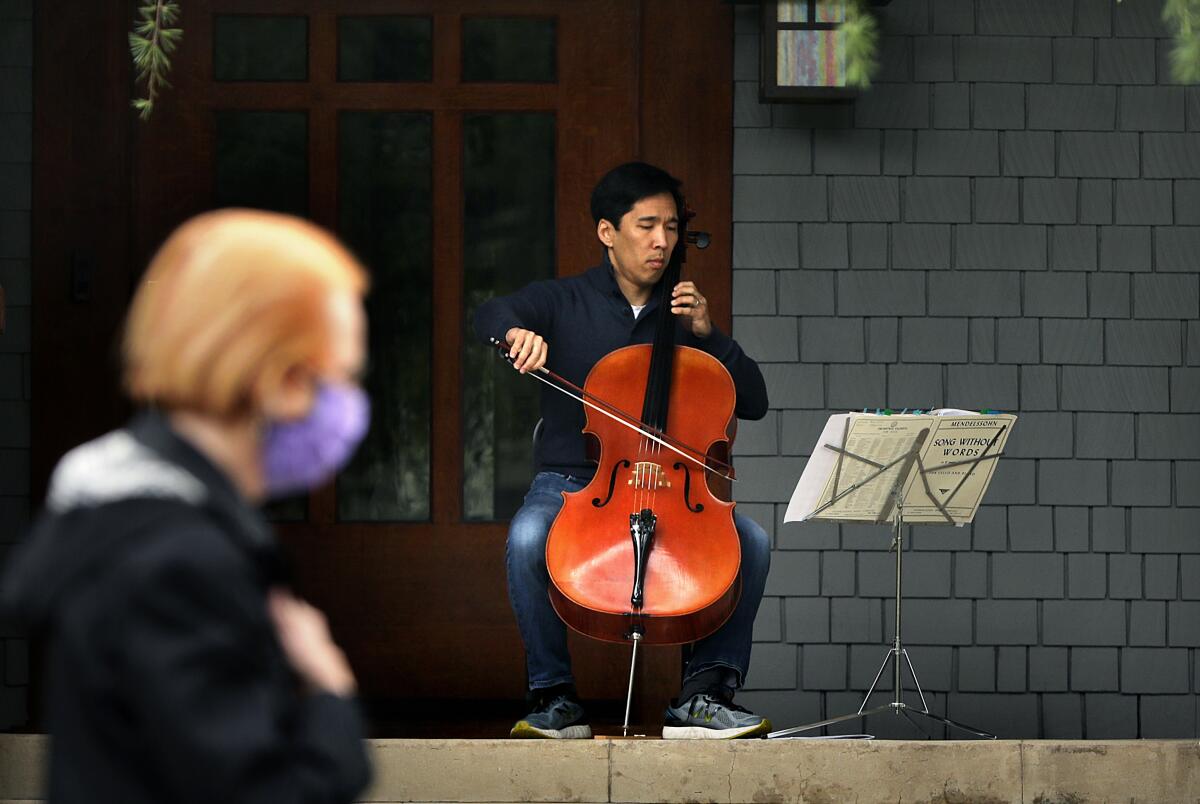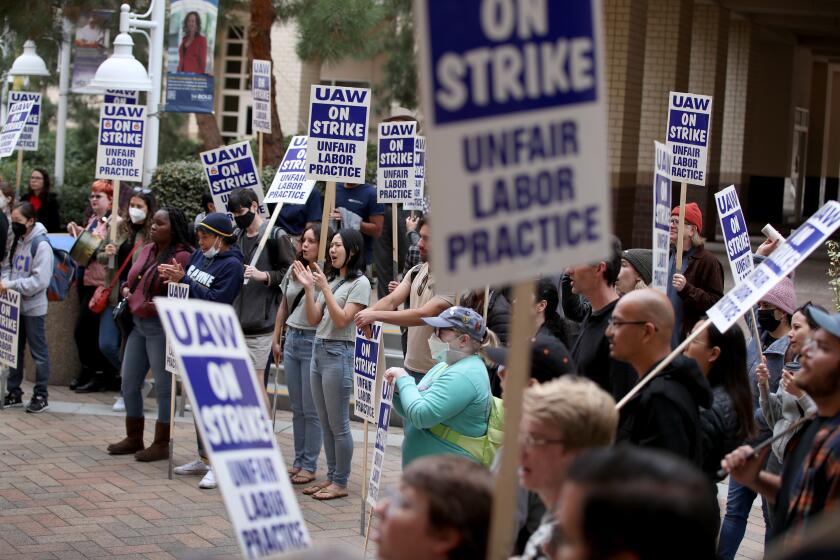USC names Beong-Soo Kim, its general counsel, interim president after Carol Folt steps down

- Share via
- Beong-Soo Kim, a former federal prosecutor and the university’s general counsel, will take over as interim president when Carol Folt steps down.
- Kim was described by university trustees as a leader of “impeccable character.”
- He will confront ongoing budget cuts and Trump administration threats to higher education operations.
USC announced Wednesday that Beong-Soo Kim, a former federal prosecutor and the university’s general counsel, has been named its interim president and will take over after its current leader, Carol Folt, leaves her position at the end of June.
In his role as general counsel, Kim has guided the university through crises including a $1-billion settlement in 2021 with alumnae victimized by campus gynecologist George Tyndall, in what was the largest sex abuse payout in higher education history. Last spring, he advised Folt as she grappled with turmoil over pro-Palestinian activism and canceled commencement events.
He will take the helm at USC during a time of budget shortfalls, labor strife and uncertainty as President Trump threatens to punish campus protesters and reel in so-called elite, “Marxist” universities.
How USC’s controversial decision on Asna Tabassum’s valedictorian speech led to nearly two weeks of campus tension with 93 arrests and a canceled ‘main stage’ commencement.
Announcing the decision in a campuswide letter Wednesday, Board of Trustees Chair Suzanne Nora Johnson and Vice Chair David C. Bohnett praised Kim, who has worked at USC since 2020, for his “impeccable character, strong and collaborative leadership and a broad understanding of our academic research and medical enterprises, as well as our athletics programs.”
“He also possesses a deep commitment to the university’s academic, research and health care missions and our aspirations for excellence in all that we do,” the letter said.
“He has built strong relationships with deans, faculty and staff across USC and Keck Medicine, earning respect from everyone,” it continues.
“In order to dedicate all of his efforts to being a faithful steward of USC’s work and responsibilities throughout this transition,” Johnson and Bohnett said, Kim will not be considered beyond an interim role. They said an temporary replacement for USC’s top attorney will be announced at a later date.
Folt will retire in July after cleaning up scandals and expanding student access but drawing dissatisfaction over her handling of pro-Palestinian protests.
USC also formed a 20-person presidential search committee, co-chaired by trustees Carmen Nava, a retired AT&T executive, and Mark Stevens, a venture capitalist. The committee includes 11 trustees in addition to faculty, staff and one student from the Thornton School of Music.
It has no deadline for selecting a new president, and Kim does not have an end date for his interim position.
Kim, 52, previously worked as a vice president and assistant general counsel at Kaiser Permanente and as a partner at the Jones Day law firm. He served in the U.S. Attorney’s office in Los Angeles for nearly nine years, until 2012. Earlier, he was an adjunct law professor at USC.

An amateur musician whom The Times covered when he performed impromptu pandemic-era cello concerts from his Pasadena porch, Kim has reputation for being calm and cerebral, and aware of the complexities in running a university.
During his time at USC, he has been on the front lines of responding to complex university issues, including USC’s part in the Varsity Blues admissions scandal, reforms to the athletic department and the fallout from the COVID-19 pandemic. He also provided counsel during the school’s move to the Big Ten and dealt with the changing regulatory environment around student athletics.
John Manly, the Orange County lawyer who represented dozens of Tyndall sexual abuse victims, said he dealt in a “positive” way with Kim through intermediaries.
“He came in in the middle of the litigation, and whether it was his idea or [former Board Chair] Rick Caruso’s, they resolved it — so that’s a positive,” Manly said. Although Manly credited USC with recognizing the harm to Tyndall’s patients and paying accordingly, he said the university — like other institutions — still faced a culture that can look at those raising concerns as a problem. Kim, he said, “has the opportunity to change that culture as president, and he should.”
As USC enters a new era, Kim — and the future permanent president — faces growing challenges to the campus and higher education. There have been widespread complaints about departmental cuts and hiring freezes. The university saw tumult after reducing the long-standing benefit of free tuition for family members of employees who served for 15 years or more. USC is also challenging a unionization drive among thousands of adjunct, part-time and non-tenure-track faculty.
A flurry of labor organizing is unfolding at California universities as campus union leaders predict a less labor-friendly environment.
Folt announced in November that she would step down as president and remain at USC as a tenured professor.
Her future had been in question since July, when USC trustees said they extended her five-year contract but did not disclose the length or terms. Folt began her presidential term on July 1, 2019, with the task of rebuilding USC’s reputation after the scandal-tarnished presidency of C.L. “Max” Nikias, who resigned a year earlier. Her contract compensated Folt at the same level as Nikias.
Folt’s presidency was marked by an expansion of programs in computing, health sciences, athletics, financial aid and student well-being. Among those was a $1-billion effort to further computing across USC via a new School of Advanced Computing and other programs.
She has taken pride in her actions to address racist chapters in the university’s history.
Under Folt, USC awarded honorary degrees to Japanese Americans incarcerated during World War II who were denied the chance to continue their USC studies. She also stripped the name of eugenicist Rufus von KleinSmid from a prominent building and renamed it after Dr. Joseph Medicine Crow, a Native American leader; and honored survivors of the Holocaust with a University Medallion.
More to Read
Sign up for Essential California
The most important California stories and recommendations in your inbox every morning.
You may occasionally receive promotional content from the Los Angeles Times.















